OUR BLOG
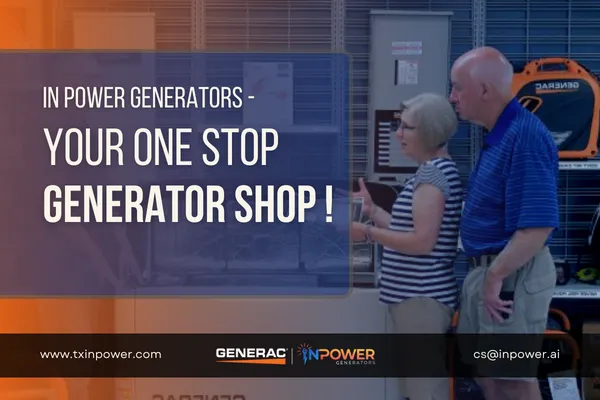
Your One Stop Generator Shop - In Power Generators
You are not dreaming if you think severe weather is becoming more frequent in the USA. The frequency and severity of severe weather occurrences have both increased over the last 20 years, according to research. Our electrical system and other aged assets are in danger from that.
Much of the power system in the US was constructed in the '60s and '70s, long before more frequent and severe weather became commonplace. Much of the nation is more likely to experience power outages during severe weather, according to a new warning from the North American Electric Reliability Corp.
A whole house generator might be the solution you've been searching for to ensure that your home's electricity stays on even when the power goes out. Which one is best for you, however, will depend on your house and your requirements. With the help of In Power Generators, your one stop generator shop, you can now get above this power outage in severe weather conditions.
Factors To Consider Before Buying A Home Generator
When searching for a whole house generator, there are many things to keep in mind. You should think about whether you really need a generator before buying one from your one stop generator shop. After that, you should think about your budget and factors like capacity, fuel type, and other features that you may need.
Need of It
The first and most important thing to consider is whether or not you really need one. You probably won't need this much electricity, and installing one can be a hassle if you are in a densely crowded city flat. Furthermore, if you reside in a more affluent or heavily populated region, you are less likely to have prolonged power outages. Research indicates that low-income communities, rural and suburban locations, and places with a higher population density are statistically more prone to longer outages.
Think about getting a portable generator from one stop generator shop or setting up a home power station to power things like mobile phones and small appliances if you're in a smaller place or don't need to power your whole house.
Wattage Needs
An important thing to think about is how many watts your home needs to be powered in the event of a grid failure. One easy way to prepare for a power loss is to just tally up the wattage of all the gadgets you'll need to use. You may save money on both the initial investment and fuel expenditures by controlling your consumption to stay within your capacity.
You should also be able to get assistance figuring out the size you need from a reliable generator installation or dealer. To get the most out of your time, talk to many people and compare their responses.
Fuel Usage
The three most common fuels for whole-house generators are diesel, natural gas, and propane. The pros and cons of each fuel type are unique. A common reason for the popularity of natural gas generators is the ease of having a constant supply of fuel supplied by the utility grid. Generating power from either a smaller, portable propane tank or a bigger, permanently installed tank gives propane generators a lot of versatility. Diesel generators provide a more reliable and long-lasting power source than gas generators while also being more fuel-efficient.
Depending on the load, gasoline or diesel generators usually need to be topped up every 12 to 16 hours. If homeowners choose for this, they should stock up on gasoline to last them during the outage, which might last several days.
Power generation using batteries linked to solar panels is independent of fuel. Also, solar batteries aren't cheap, so that's going to be a big issue for most people.
Budget
Despite the many advantages of a generator, cost is likely to be a major consideration for the majority of consumers. Whole-house generators may cost anywhere from $5,000 to $25,000, according to HomeAdvisor. Many families will find this fee and gasoline costs to be prohibitive.
According to experts, a portable generator is a good, compact, and inexpensive alternative if money is tight. Appliances like refrigerators, lights, TVs, laptops, and Wi-Fi routers may be powered by smaller generators. A few things must be considered, though: Consumers should plan accordingly for heating or cooling their houses during severe weather conditions if they choose smaller units of generators since most of them cannot operate central air or heat.
Safety of Whole Home Generators
There are certain dangers to using a whole house generator, but they also keep you safe by maintaining the functionality of critical home systems. Carbon monoxide poisoning, which may manifest as headaches, vertigo, and ultimately coma or death, is a real possibility due to the possibility of CO emissions.
To combat this, a lot of newer generators include CO shutdown valves that will activate the power-off feature in the event that the levels go too high. Your own security and the safety of others in your house depend on these. Make sure your device has enough airflow and is set far from your indoors. If you want to keep the exhaust fumes from your generator out of your house, you should put it in a location far from any openings that may let them in.
Your One Stop Generator Shop For All Worries!
Whole house generators are available from a variety of reputable companies; most include up-to-date safety features and are versatile in terms of capacity and fuel sources, so you may choose the one that's best for your house. However, in the USA, Generac generators are a top choice for majority of the households. The Generac Guardian Wi-Fi Enabled Standby Generator is an excellent choice if you're looking for suggestions. This advanced generator can power the majority of households with its 22-kilowatt capacity. You may set it to silent mode and it has built-in safety measures. Either natural gas or propane may power it.
In Power Generators has grown into the leading full-service generator installation, offering a complete line of generators manufactured by Generac. So, in case you’re looking for a reliable one stop generator shop to put all your worries on, In Power Generators is the one. Let our experts handle everything from installation to repair and maintenance.
To learn more about us and our services, visit our website or give us a call at (833) 669-3322.
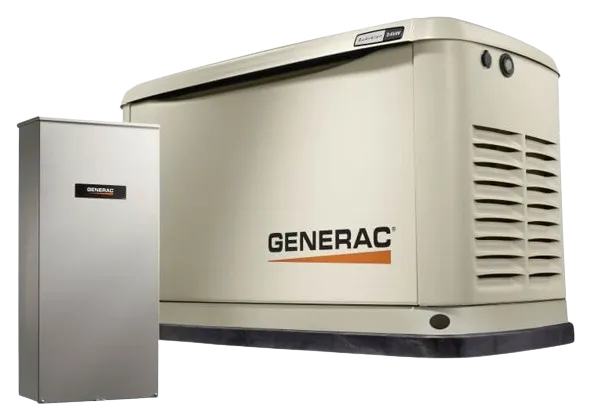
As Seen On Facebook, TikTok & Google
$1,500 INSTANT REBATE
WHEN YOU PURCHASE A WHOLE-HOUSE GENERATOR
What Our Customers Say About Us
Latest Reviews
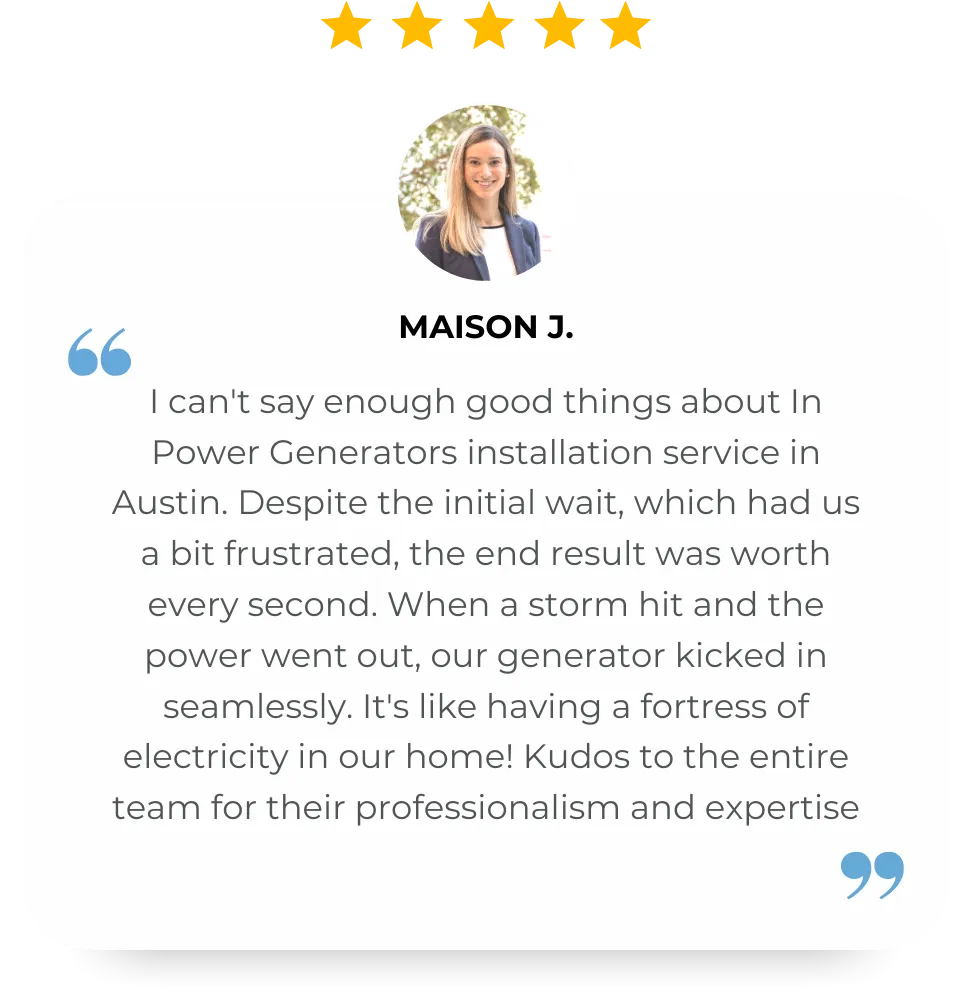

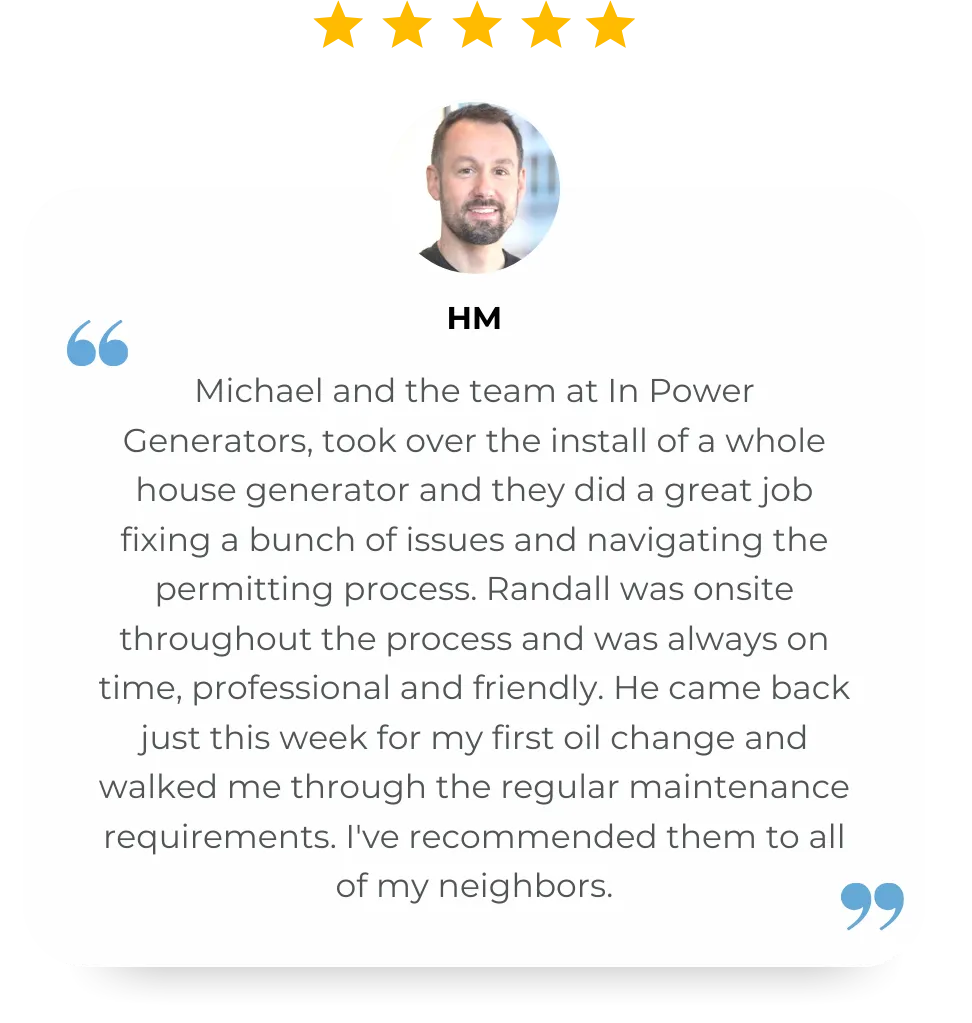



5 Star Reviews

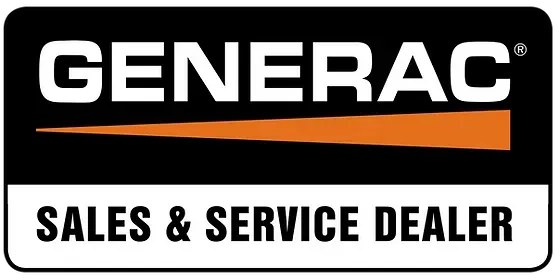


Serving Houston, Austin, San Antonio, DFW, Corpus Christi and Waco Markets





